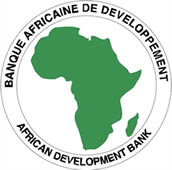 Private Enterprise Federation
Advocacy, Business Development and Market Access
Private Enterprise Federation
Advocacy, Business Development and Market Access
Advocacy, Business Development and Market Access
Private Enterprise Federation ICT Platform
corporate governance is the set of arrangements through which organizations account to their stakeholders. Good corporate governance requires accountability to a broad stakeholder-group including shareholders, creditors, employees, customers, suppliers, and all categories of persons who come into contact with a company's day-to-day activities. This perspective on corporate governance is applicable to all kinds of firms irrespective of ownership structure,and requires organizations to balance interests of all stakeholders. Good corporate governance supports and sustains economic growth by promoting the efficient use of resources and by creating conditions that attract both domestic and foreign investment.
The Private Enterprise Foundation (PEF), under Component Two of the Ghana Government
IUNDP Promoting Private Sector Development Programme (PPSDP), organized a roundtable l e discussion on Service) delivery by ECGIVRA to the Private Sector, on 4th August 2003 at Novotel Hotel Accra.
In recent times the delivery of electricity, especially service to the private sector is observed to be fraught with major constraints leading to operational difficulties for u se rs of e l ectricity. Pursuant to serving the obligation of PEF to service the needs of private enterprises, PEF commissioned MAPO & Associates Ltd to conduct a study on the service d e li very of ECGIYRA to the private sector. The study is expected to suggest recommendations for improving the quality of service.
The Private Enterprise Foundation (PEP) has noted with concern the various comments and frustrations that different classes of consumers have expressed about the utility services in Ghana. PEP recognized the seriousness of the developments and decided to undertake a very thorough review of the situation and to move on to finding the best steps to produce reliable remedies and results.
During the 1960s and 1970s most developing countries including Ghana: - were of the strong conviction that governments alone reserved the right to promote and advance the cause of national economic development.In the 1980s and 1990s- however- the conviction yielded to the pursuit of a market economy as the vehicle for the promotion of entrepreneurial development- which leads to a more efficient allocation of resources and motivates business creation and expansion. Consequently developing countries are now relocating the drive of economic development from government to the private sector.
The Companies Code was enacted and promulgated in 1963 (Act 179), and has ever since been in force. Since it was drafted by the famous Professor L. C. B. Gower and promulgated, forty (40) years have elapsed - Ghana and the world have moved on in directions that could not have been anticipated by Gower.
The Companies Code lists the guidelines and regulations on how companies are formed and governed, as well as define the tone of relationship between the state and companies. A good Companies Code emphasizing good corporate governance as well as a clear regulatory framework and acceptable burdens of corporate compliance is a driving force for investment flows.
The Private Enterprise Foundation (PEF), was founded on the initiative of four major business associations: Association of Ghanaian Industries (AGI), Ghana National Chamber of Commerce (GNCC), the Ghana Employers Association (GEA), and the Federation of Associations of Ghanaian Exporters (FAGE), which have felt the need to come together to exert greater influence on policy initiatives for the creation of an enabling environment in which private sector businesses can thrive as partners in the Economic Development of the Country. PEF is a non-profit making, non-political, autonomous institution,
The National coordinator of the Ghana Capacity 21 Programme, Mr. S. 0. Saaka apologized on behalf of the Chief Director of the Ministry for Environment Science and Technology for his inability to be at the workshop due to other equally important engagements. He said, it has been about a year since PEF began planning for this workshop and the UNDP/Ghana Capacity 21 Programme assisted in organizing their focal persons in the various districts to be part of this workshop. He lauded PEF's efforts in going beyond Accra and Kumasi and to the remote parts of the country to draw participants for this workshop.
This colloquium, coming so soon after the First National Forum on Harnessing Research, Science and Technology for Sustainable Development of Ghana, held at the International Conference Centre, Accra, from March 15th to 19th, 2004 encourages me to amplify, explain further and contextualize better, some of the following key statements I made and ideas I espoused within the constraints of the planned period of the forum when I spoke on
Ghana Vision 2020: A Middle Income Country by the Year 2020
Ghana seeks to become a middle income country by the year 2020. This ambitious objective, embodied in the Government's Vision 2020, requires an average annual growth rate of 8% from 1995-2020. Maintaining the present policy framework, and thus its historical growth rate, will only achieve Half of what is required--Ghana must work twice as hard. The accelerated growth needed to attain the Objective of Vision 2020 can only come from a radical and sustained shift in the policy framework, to One that effectively implements an outward-oriented growth strategy. To achieve the required growth rate, exports must grow at least 10% per year--doubling every seven years. But traditional exports, currently accounting for 85% of total exports, are projected to grow at most by 5% per annum. This means that non-traditional exports must be the new engine of growth, growing at more than 15% per year from now to 2020. Export growth rates of this magnitude will result only if the entire economy is Focused on international competitiveness.
The Ghanaian private sector has been designated as the engine of growth in the country's new development strategy. This new role of the private sector is no doubt a challenging one. This is because the private sector is expected to play roles hitherto the preserve of the state.


































